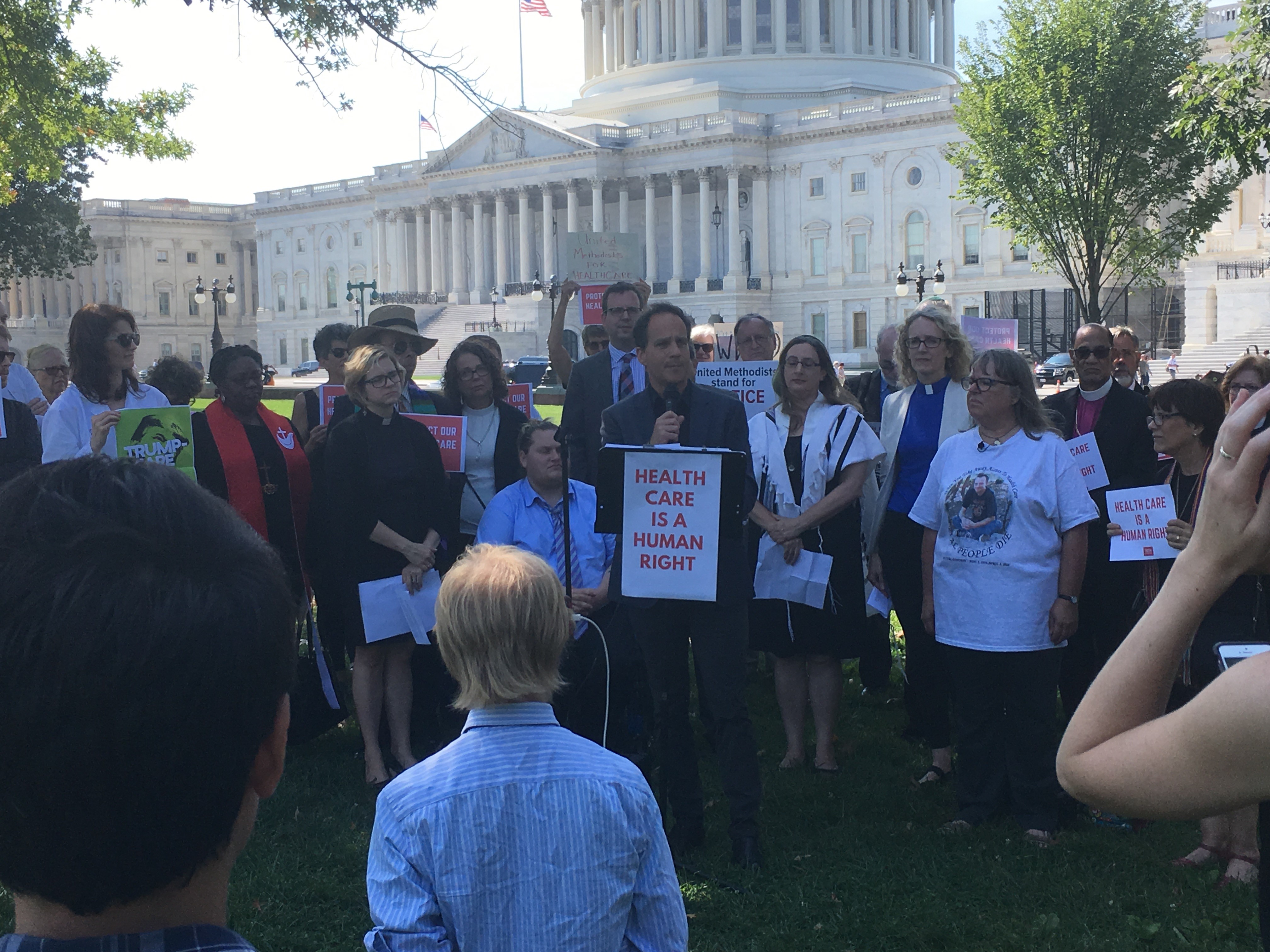The Affordable Care Act: Eight Years Later

Last July, I joined partners from throughout the faith community for a 24-hour vigil to defend the Affordable Care Act. We stood just steps away from the entrance to the Capitol, some huddling under a tree for relief from the heat of a D.C. summer. Jewish members of Congress, and later members of Congress from a variety of faith traditions, spoke to our group and offered us luck as we braved the outdoors for 24 hours to stand up for those who have benefitted from the ACA. As the sun set, the temperature dropped, and only a couple dozen remained, I was reminded of just what was at the heart of our efforts.
We stood in a circle, each person offering a reason for participating in the vigil. For some, the issue was personal: a mother who lost her job but who could now qualify for Medicaid thanks to the ACA; a man born with medical conditions that would have disqualified him for affordable health care if not for the ACA’s protections for people with preexisting conditions; young people who could now pursue jobs that did not offer insurance because they could stay on their parents’ health care. For others, the ACA was an expression of religious and moral beliefs. Regardless of why they were there, each person was committed to doing whatever was necessary to defend a law that benefitted so many.
Today we celebrate eight years since the Affordable Care Act passed. We celebrate over 20 million Americans who now have insurance thanks to the law. We celebrate the millions more with pre-existing conditions who no longer worry about being denied coverage or charged more because of something out of their control. We celebrate the narrowing of the racial health care access gap that has for too long perpetuated other inequities. And despite Congressional and administrative efforts to repeal and undermine the ACA, we celebrate a program that remains strong.
Eight years since the ACA passed, we know how much more needs to be done to make health care a right for every American. 30 million remain uninsured, leaving tens of millions a sickness away from financial and health crisis. Families deserve relief from rising premiums and inadequate coverage that burden middle-class families across the country. And racial gaps remain: 17% of Hispanics and 12% of Blacks are uninsured, compared to just 8% of Whites. Solving these problems will require more than partisan bickering or political posturing. It necessitates members of both parties—and all Americans-- to confront reality and work together to achieve universal coverage.
Last July, when it was my turn to share why I was participating in the marathon vigil, I said that my Jewish values insisted I be there. I thought about the Talmudic teaching that a Torah scholar cannot live in a city that does not include a doctor (Sanhedrin 17b), the Biblical commandment to not stand idly by the blood of our neighbors (Leviticus 19:16), and the Jewish communities of the middle ages that collected money for the poor. But I also thought about values I learned much earlier, when I was in fifth grade and my mom became sick. The values that inspired our tight-knit Jewish community to make sure that my family had meals cooked for us and that I had a ride to school. The values that found voice in the Mi Sheberach, the prayer for the sick, uttered on my mom’s behalf every Shabbat. The values that gave us strength when we had none. But my mom—and our family—were lucky: her employer offered-high quality insurance. Without that, the support of our friends and family would have only gone so far.
The Affordable Care Act sought to extend the benefits of communal responsibility to all Americans. It envisioned a country in which race, gender, and income are not barriers to essential health services. There is far more work to be done, but today we celebrate being eight years closer to fulfilling that vision.
To defend the integrity of the ACA, urge the Trump Administration to refrain from expanding short term health plans, which would undermine access to quality, affordable health care.
Related Posts

It’s Time for Congress to Pass a Build Back Better Bill That Expands Health Care

How Judaism Inspires My Mental Health Advocacy


